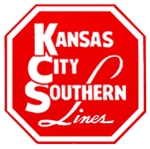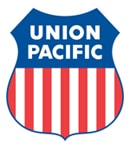
4th Quarter 2021
Net Earnings: Increased 13% to $1.7 billion from $1.5 billion
Diluted Earnings Per Share: n/a – BNSF is not publicly traded
Revenue: Increased 11% to $6.3 billion from $5.7 billion
Operating Income: Increased 12% to $2.4 billion from $2.2 billion
Operating Expenses: Increased 10% to $3.9 billion from $3.5 billion
Operating Ratio: Improved to 60.0% from 60.3%
2021 Annual Earnings
Net Earnings: Increased 16% to $6.0 billion from $5.2 billion
Diluted Earnings Per Share: n/a – BNSF is not publicly traded
Revenue: Increased 12% to $23.3 billion from $20.9 billion
Operating Income: Increased 14% to $8.8 billion from $7.7 billion
Operating Expenses: Increased 10% to $14.5 billion from $13.1 billion
Operating Ratio: Improved to 60.9% from 61.6%
Read BNSF’s full earnings report.

4th Quarter 2021
Net Earnings: Increased 17% to C$1.20 billion from C$1.02 billion
Diluted Earnings Per Share: Increased 18% to $1.69 per share from $1.43 per share
Revenue: Increased 3% to C$3.75 billion from C$3.66 billion
Operating Income: Increased 11% to a record C$1.57 billion from C$1.41 billion
Operating Expenses: Decreased 1% to C$2.19 billion from C$2.25 billion
Operating Ratio: Improved 3.1 points to 58.3% from 61.4%
2021 Annual Earnings
Net Earnings: Increased 37% to C$4.90 billion from C$3.60 billion
Diluted Earnings Per Share: Increased 38% to $6.89 per share from $5.00 per share
Revenue: Increased 5% to C$14.48 billion from C$13.82 billion
Operating Income: Increased 18% to C$5.62 billion from C$4.78 billion
Operating Expenses: Decreased 2% to C$8.86 billion from C$9.04 billion
Operating Ratio: Improved 4.2 points to 61.2% from 65.4%
Read CN’s full earnings report.

4th Quarter 2021
Net Earnings: Decreased 34% to C$532 million from C$802 million
Diluted Earnings Per Share: Decreased 38% to $0.74 per share from $1.19 per share
Revenue: Increased 1% to C$2.04 billion from C$2.01 billion
Operating Income: Decreased 10% to C$832 million from C$928 million
Operating Expenses: Increased 11% to C$1.21 billion from C$1.08 billion
Operating Ratio: Worsened 530 basis points to 59.2% from 53.9%
2021 Annual Earnings
Net Earnings: Increased 17% to C$2.9 billion from C$2.44 billion
Diluted Earnings Per Share: Increased 16% to $4.18 per share from $3.59 per share
Revenue: Increased 4% to C$8.0 billion from C$7.71 billion
Operating Income: Decreased 3% to C$3.21 billion from C$3.31 billion
Operating Expenses: Increased 9% to C$4.80 billion from C$4.40 billion
Operating Ratio: Worsened 280 basis points to 59.9% from 57.1%
Read CP’s full earnings report.

4th Quarter 2021
Net Earnings: Increased 23% to $934 million from $760 million
Earnings Per Share: Increased 27% to $0.42 per share from $0.33 per share
Revenue: Increased 21% to $3.43 billion from $2.83 billion
Operating Income: Increased 12% to $1.37 billion from $1.22 billion
Operating Expenses: Increased 28% to $2.1 billion from $1.6 billion
Operating Ratio: Worsened to 60.1% from 57.0%
2021 Annual Earnings
Net Earnings: Increased 37% to $3.8 billion from $2.8 billion
Earnings Per Share: Increased 40% to $1.68 per share from $1.20 per share
Revenue: Increased 18% to $12.52 billion from $10.58 billion
Operating Income: Increased 28% to $5.6 billion from $4.4 billion
Operating Expenses: Increased 11% to $6.9 billion from $6.2 billion
Operating Ratio: Improved to 55.3% from 58.8%
Read CSX’s full earnings report.

4th Quarter 2021
Net Earnings: Increased 258% to $595.1 million from $166.3 million
Earnings Per Share: On December 14, 2021, Canadian Pacific Railway acquired the outstanding common and preferred stock of KCS. Therefore, earnings per share data is not presented because the company does not have any outstanding or issued publicly traded stock.
Revenue: Increased 8% to $747.8 million from $693.4 million
Operating Income: Increased 209% to $810.6 million from $262.3 million
Operating Expenses: Decreased 115% to a negative $62.8 million from $431.1 million due to the merger
Operating Ratio: Improved 70.6 points to –8.4% from 62.2%
2021 Annual Earnings
Net Earnings: Decreased 15% to $527 million from $619 million
Earnings Per Share: On December 14, 2021, Canadian Pacific Railway acquired the outstanding common and preferred stock of KCS. Therefore, earnings per share data is not presented because the company does not have any outstanding or issued publicly traded stock.
Revenue: Increased 12% to $2.95 billion from $2.63 billion
Operating Income: Decreased 12% to $884 million from $1.00 billion
Operating Expenses: Increased 27% to $2.06 billion from $1.63 billion
Operating Ratio: Worsened 8.1 points to 70.0% from 61.9%
Read KCS’s full earnings report.

4th Quarter 2021
Net Earnings: Increased 13% to $760 million from $671 million
Diluted Earnings Per Share: Increased 18% to $3.12 per share from $2.64 per share
Revenue: Increased 11% to $2.9 billion from $2.6 billion
Operating Income: Increased 15% to a 4th quarter record of $1.1 billion from $1.0 billion
Operating Expenses: Increased 8% to $1.7 billion from $1.59 billion
Operating Ratio: Improved 2% to a 4th quarter record 60.4% from 61.8%
2021 Annual Earnings
Net Earnings: Increased 27% to $3 billion from $2 billion
Diluted Earnings Per Share: Increased 31% to $12.11 per share from $7.84 per share
Revenue: Increased 14% to $11.1 billion from $9.8 billion
Operating Income: Increased 28% to a record $4.4 billion from $3.0 billion
Operating Expenses: Decreased 1% to $6.7 billion from $6.8 billion
Operating Ratio: Improved 7% to an all-time record of 60.1% from 69.3%
Read NS’s full earnings report.

4th Quarter 2021
Net Earnings: Increased 24% to $1.7 billion from $1.4 billion
Earnings Per Share: Increased 30% to $2.67 per share from $2.05 per share
Revenue: Increased 12% to $5.7 billion from $5.1 billion
Operating Income: Increased 22% to $2.4 billion from $2.0 billion
Operating Expenses: Increased 5% to $3.3 billion from $3.1 billion
Operating Ratio: Improved 3.6 points to 57.4% from 61.0%
2021 Annual Earnings
Net Earnings: Increased 22% to $6.5 billion from $5.3 billion
Earnings Per Share: Increased 26% to $9.98 per share from $7.90 per share
Revenue: Increased 12% to $21.8 billion from $19.5 billion
Operating Income: Increased 19% to $9.3 billion from $7.8 billion
Operating Expenses: Increased 7% to $12.5 billion from $11.7 billion
Operating Ratio: Improved 2.7 points to 57.2% from 59.9%
“The Union Pacific team concluded its most profitable year ever in 2021. We produced double-digit fourth-quarter revenue growth by leveraging our great rail franchise to generate positive business mix and core pricing gains,” UP CEO Lance Fritz said.
Read UP’s full earnings report.
Notes:
- Operating ratio is a railroad’s operating expenses expressed as a percentage of operating revenue, and is considered by economists to be the basic measure of carrier profitability. The lower the operating ratio, the more efficient the railroad.
- All comparisons are made to 2020’s fourth-quarter and 2020 year-end results respectively for each railroad.
- All figures for CN & CP are in Canadian currency, except for earnings per share.